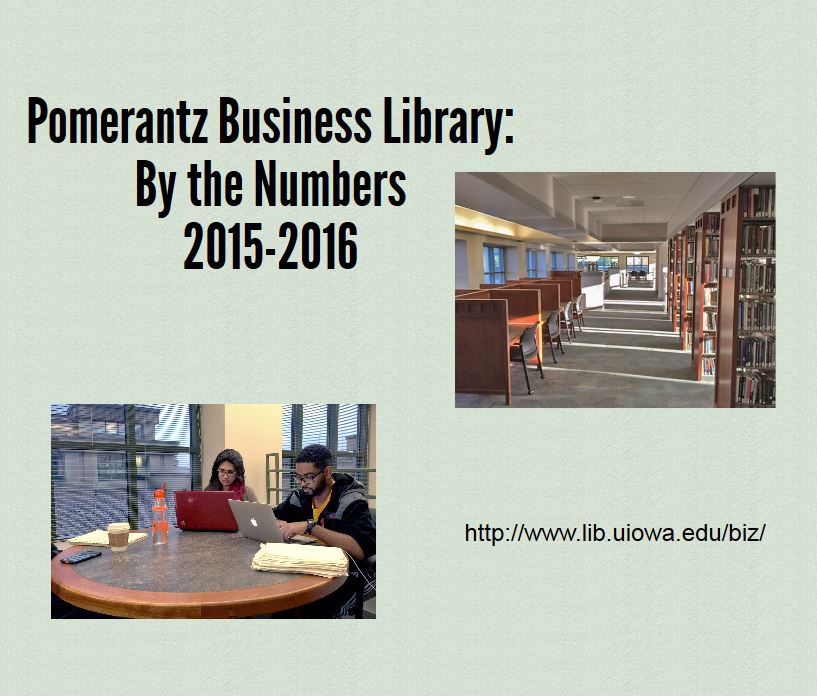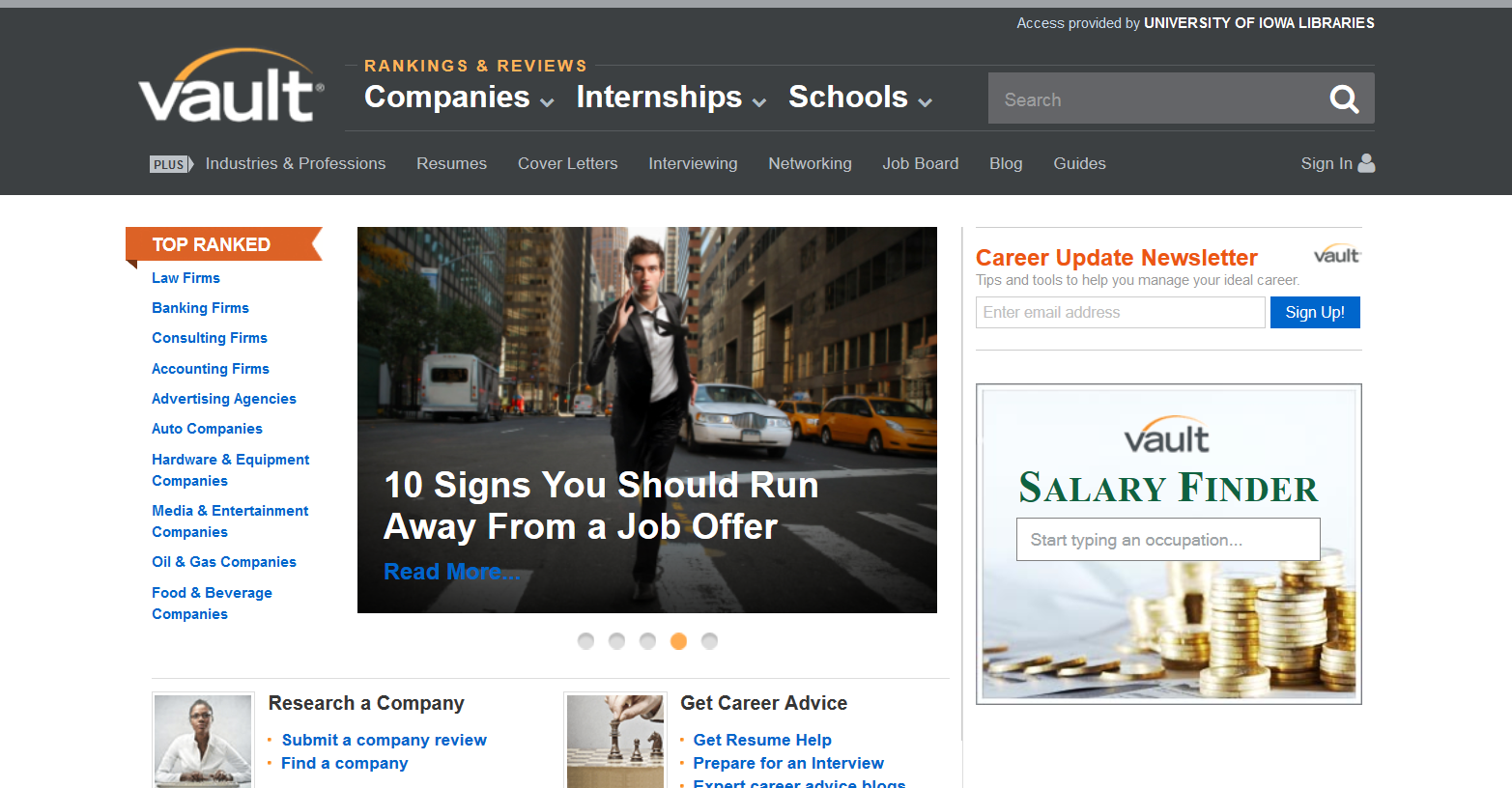Need a soft drink, a light lunch maybe, and a peaceful place to study? Come to the BizHub! You have your choice of conversation space, personal seating, or even a group-study room. Would you like help with an assignment or want to borrow a reserve book? Visit the service-desk; during the summer, staff is availableContinue reading “Grab Something Cool and Enjoy the Quiet”
Category Archives: General
New Film Acquisition: Capitalism (available to stream)
The Business Library/UI Libraries recently acquired an online streaming license to Capitalism –a film produced and directed by Ilan Ziv. Description from Icarus Films: CAPITALISM is an ambitious and accessible six-part documentary series that looks at both the history of ideas and the social forces that have shaped the capitalist world. Blending interviews with someContinue reading “New Film Acquisition: Capitalism (available to stream)”
Tippie Learning Coaches in the Library
Tippie learning coaches will be present at the Pomerantz Business Library to provide students with homework assistance, exam preparation, and more. Students enrolled in Principles of Microeconomics (ECON:1100), Principles of Macroeconomics (ECON:1200), and Statistics for Business (STAT:1030) can find help Mondays, Tuesdays, and Thursdays, 5:00-7:00 pm. No scheduling is required.
Pomerantz Business Library By the Numbers
Today the Pomerantz Business Library looks back at the recently ended fiscal year 2016. What follows provides a window into the impact that the business library has on the teaching, learning, and research activities of students, faculty, and staff of the Tippie College of Business and the entire University of Iowa community. Thanks for aContinue reading “Pomerantz Business Library By the Numbers”
Trial Subscription: Sage Business Cases
The Pomerantz Business Library has arranged a trial to Sage Business Cases. The trial ends May 1, 2016. SAGE Business Cases brings business to life – inspiring researchers to develop their own best practices and prepare for professional success. Teaching notes are included with the trial access. In order to set up teaching notes, please follow theseContinue reading “Trial Subscription: Sage Business Cases”
Be prepared: Take a look inside Vault.
Getting ready for interviews? Researching internships? Thinking about business school or law school? The Pomerantz Business Library has a great resource to help you: Vault. Vault has an abundance of good info for the job or internship seeker. It also has rankings and reviews of law schools, business schools, and undergraduate institutions. To get aContinue reading “Be prepared: Take a look inside Vault.”
Open Web Resource Spotlight
The U.S. government has long been an active gatherer and disseminator of information. In recent years, with the roll out of the data.gov website, it has made strides to make this data more accessible and useable by the public, researchers, app developers, and businesses. The site serves as a gateway to publicly available datasets fromContinue reading “Open Web Resource Spotlight”
Collegeland: New York Times Magazine
From physical facilities to sexual assault, Collegeland, a New York Times Magazine special is also available in print at the Pomerantz Business Library.
From DNA to Beer: Harnessing Nature in Medicine and Industry.
Need a break from studying? Check out the new exhibit at the Hardin Library for the Health Sciences. Titled From DNA to Beer: Harnessing Nature in Medicine and Industry, the exhibit was produced by the National Library of Medicine and the National Museum of American History. The National Library of Medicine’s description of the exhibitContinue reading “From DNA to Beer: Harnessing Nature in Medicine and Industry.”
Books Recently Returned: 7/21/2011
These books from the Business Library’s general collection have been loaned and recently returned. Books appear in order by call number. Readers can use the list to see which subjects are popular or used for research. Click on a title for more information. Updated July 21, 2011 Title Author Call Number The business of consuContinue reading “Books Recently Returned: 7/21/2011”




